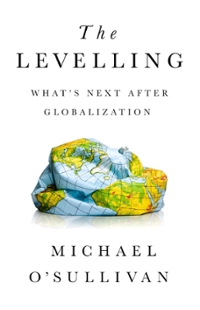Question
An article in the November 11, 2022 issue of The Wall Street Journal was entitled 'October Inflation Report Shows Consumer Prices rose 7.7% From Year
An article in the November 11, 2022 issue of The Wall Street Journal was entitled 'October Inflation Report Shows Consumer Prices rose 7.7% From Year Earlier'. In that article appears the following: "Inflation surged last year as the U.S. economy rebounded from the Covid-19 pandemic. Prices jumped as strong consumer spending - fueled by very low interest rates and government stimulus - collided with jammed supply chains and pandemic related shortages."
QUESTION A
Is the presumption in this statement that very low interest rates, holding all else constant, cause households to increase their desired spending?
For the purposes of answering this question, please interpret "very low interest rates" to mean "a reduction in interest rates".
Make sure to distinguish between expected and actual interest rates, between pre-tax and after-tax interest rates, and between nominal and real interest rates. Make sure to distinguish between results that follow from economic theory and results that follow from empirical evidence.
ANSWER A
Yes, the implication of the statement is that higher household expenditure results from lower interest rates. Based on economic theory, which contends that declining interest rates encourage borrowing and consumption, this is true. This is because lower interest rates make it cheaper to borrow money, which leads to increased spending. Additionally, lower interest rates also lead to increased investment, as it becomes more profitable to invest in projects with higher returns. This increased investment leads to increased economic growth, which in turn leads to higher incomes and more spending.
Explanation:
There is empirical evidence to support this theory as well. A study by the International Monetary Fund found that a 1 percentage point decrease in interest rates led to an increase in economic growth of about 0.3%. There are a few key reasons why lower interest rates lead to increased borrowing and consumption.
First, lower interest rates make it cheaper to borrow money. This means that households can take out loans to purchase items that they may not have been able to afford otherwise. Additionally, lower interest rates make it more profitable to invest in projects with higher returns. This increased investment leads to increased economic growth, which in turn leads to higher incomes and more spending.
The article is correct in stating that lower interest rates lead to increased consumer spending. However, it is important to note that there are other factors that can affect consumer spending as well. For example, if there is a decrease in incomes, then this could offset the effect of lower interest rates and lead to lessspending. Additionally, if there are concerns about inflation or the future direction of the economy, then this could lead to less spending as well.
Lower interest rates lead to increased consumer spending because they reduce the cost of borrowing money. This makes it cheaper for consumers to finance purchases, whichincreases their demand for goods and services. Additionally, lower interest rates encourage saving, which releases funds that can be used for spending.
There are a few other factors that can affect consumer spending. One is income: if consumers have less money to spend, then they will naturally spend less. Another is confidence: if consumers are worried about the future, they may be less likely to make big purchases. Additionally, inflation can affect spending: if prices are rising, then consumers may be less likely to buy items because they will be more expensive in the future.
In summary, the article is correct that lower interest rates lead to increased consumer spending. However, there are other factors that can affect consumer spending as well.
QUESTION B
Give an example of something that, could be considered "government stimulus" and would, all else equal, cause households to increase their desired spending.
Briefly explain why the "government stimulus" you identify would have this effect.
For the purposes of this question define "government stimulus" as something that is under the control of the government and stimulates spending by the private sector at the existing equilibrium.
ANSWER B
An example of something that could be considered "government stimulus" and would, all else equal, cause households to increase their desired spending is a tax cut.
A tax cut would stimulate spending by the private sector because it would put more money in people's pockets, which they would then spend on goods and services. The extra spending would lead to higher demand for goods and services, which would in turn lead to higher prices. This would lead to a situation where households would be able to spend more, which in turn would cause prices to rise.
The greater the tax cut, the larger the impact on prices. Since the impact on prices is proportional to the size of the tax cut, the larger the tax cut, the greater the effect on spending and prices. The tax cut might also stimulate spending by government in order to shore up the weakened economy. The impact on prices would be greater than before if government spending rises as a result of the tax cut.
QUESTION:
C)
Assume that the only shock to hit the U.S. economy was the "government stimulus" you identified in part b). According to the closed-economy model, what would the impact of this shock be on employment, the pre-tax real wage, the after-tax real wage, output, and income? Use both GRAPHS and WORDS to explain your answer.
?
Step by Step Solution
There are 3 Steps involved in it
Step: 1

Get Instant Access to Expert-Tailored Solutions
See step-by-step solutions with expert insights and AI powered tools for academic success
Step: 2

Step: 3

Ace Your Homework with AI
Get the answers you need in no time with our AI-driven, step-by-step assistance
Get Started


